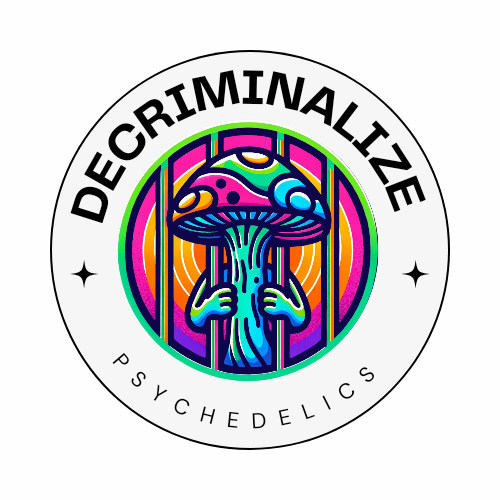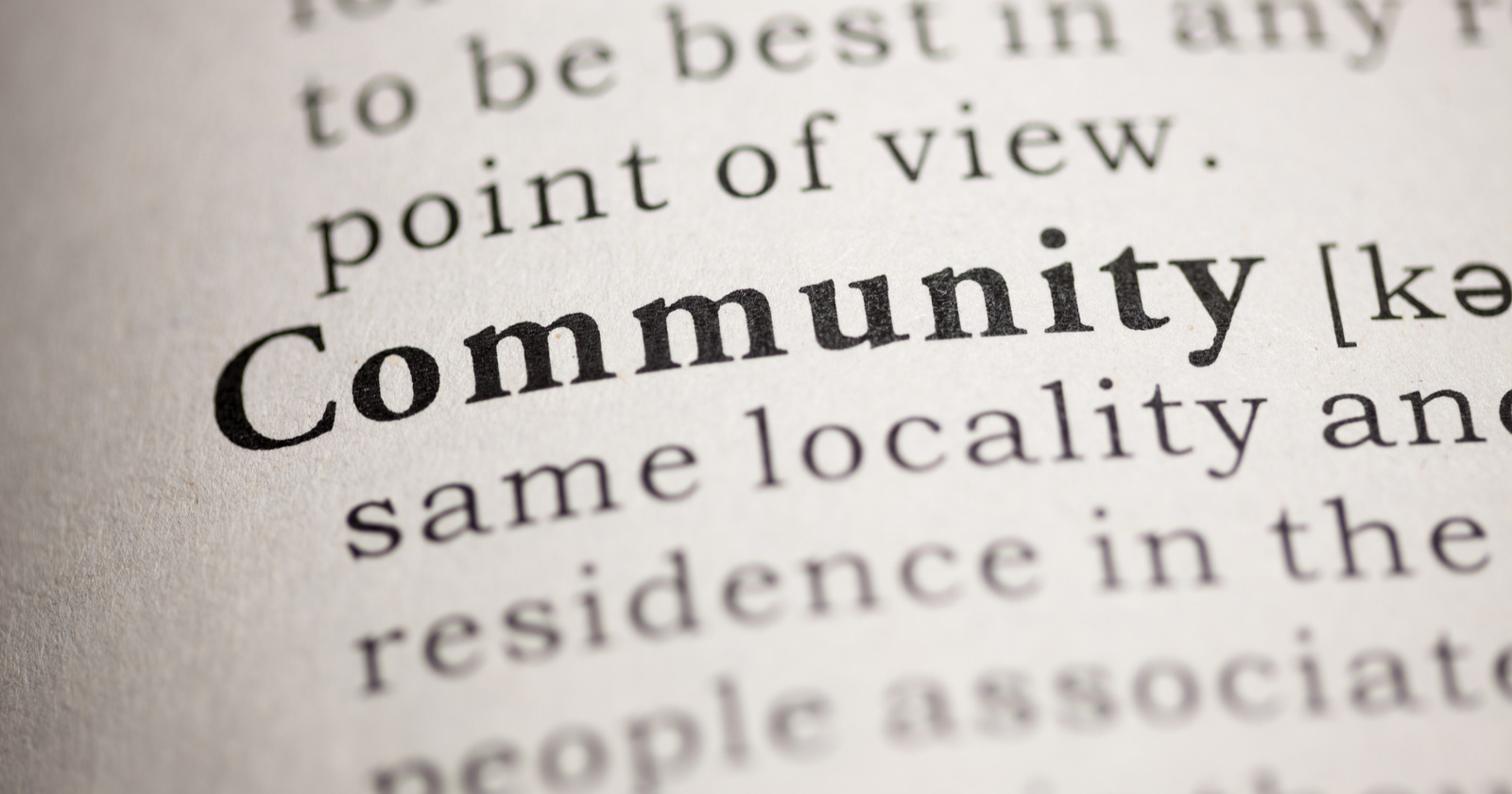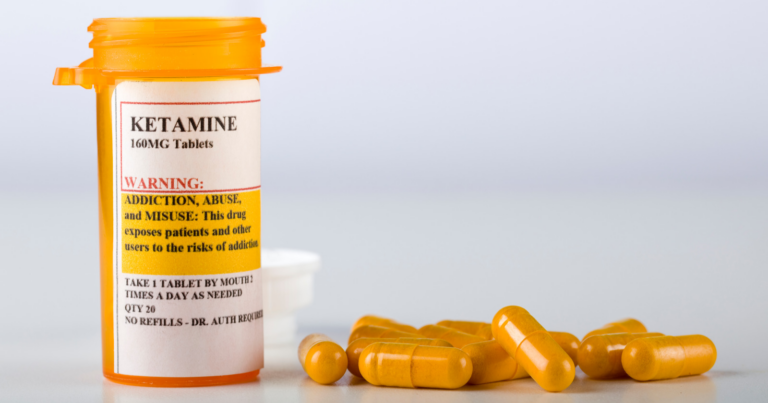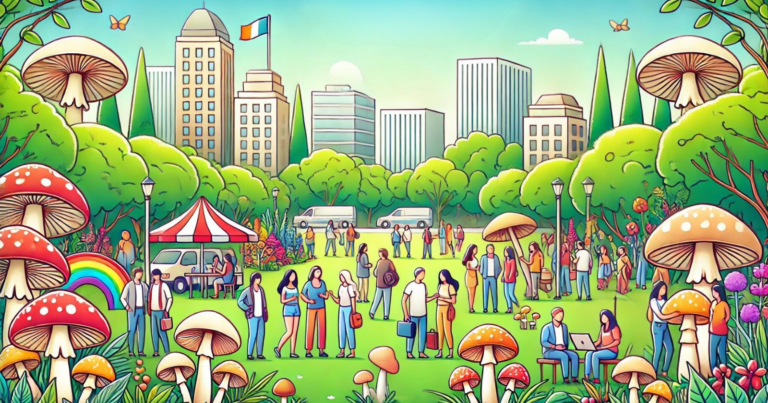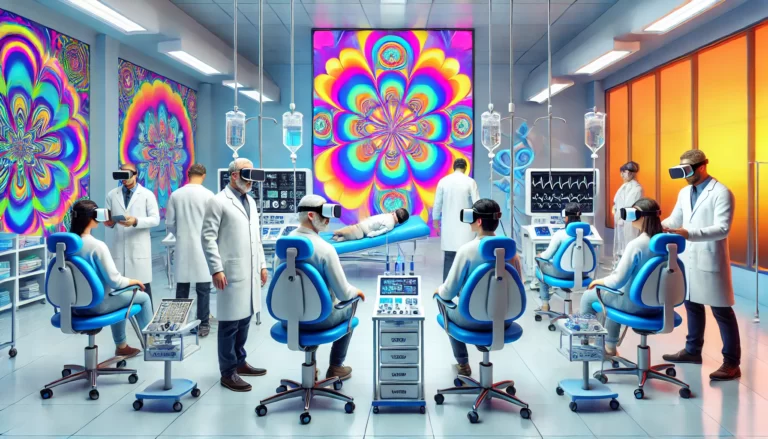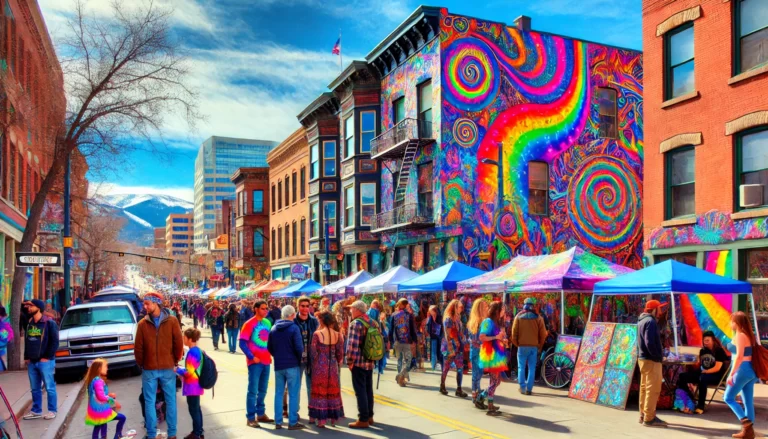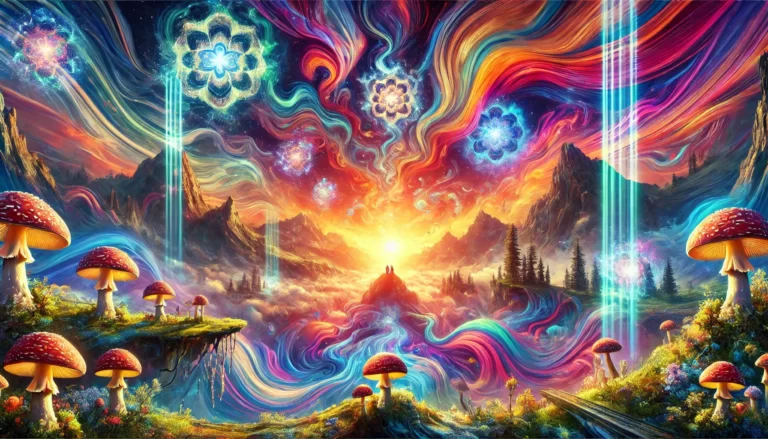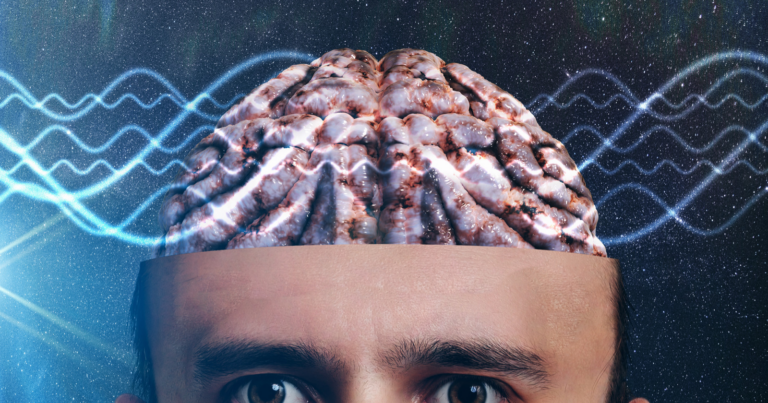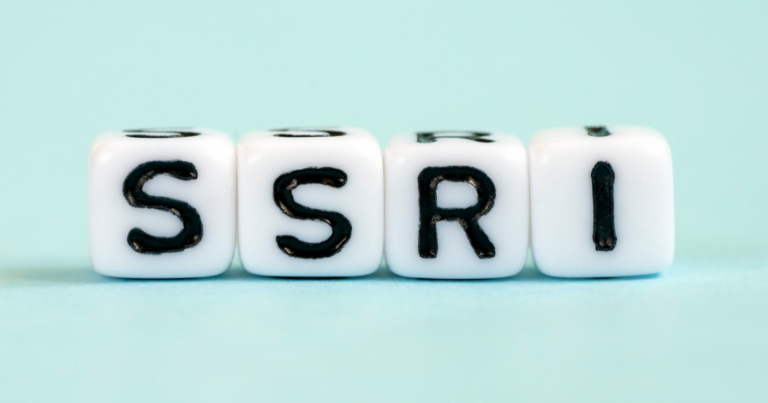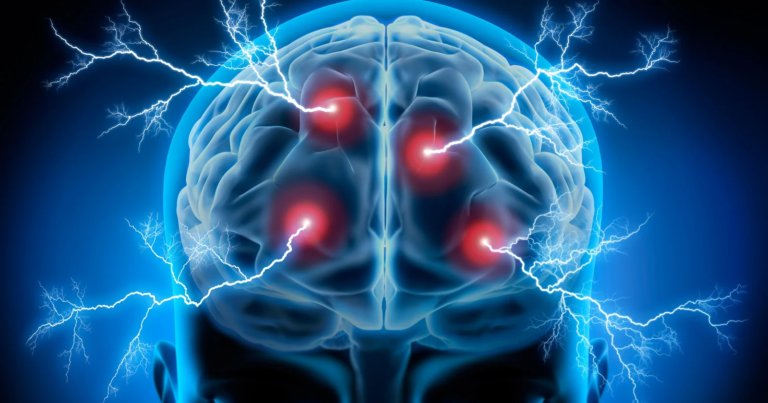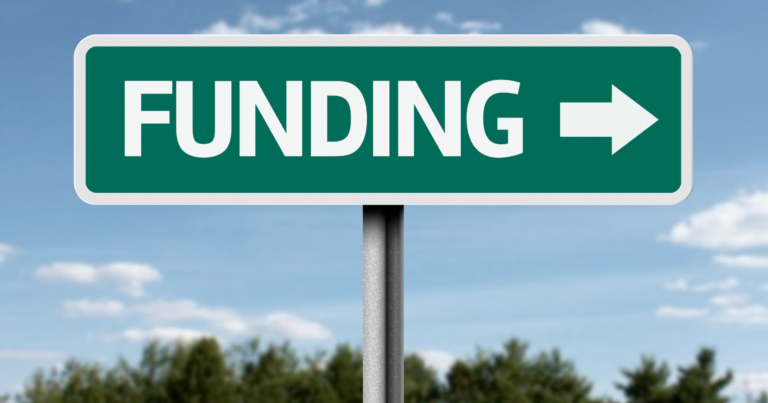Decriminalizing psychedelics can have profound benefits for marginalized communities.
This shift in policy could provide therapeutic, social, and economic opportunities for communities often overlooked.
With my extensive knowledge in the field, I’ve identified eight compelling reasons to support this cause.
Read on for these reasons and delve deeper into how psychedelic decriminalization could become a catalyst for positive change in marginalized communities.
1) Encourages Economic Growth
To me, one of the most compelling reasons for psychedelic decriminalization lies in its potential to stimulate economic growth within marginalized communities.
For communities often relegated to the sidelines, the decriminalization of psychedelics could open up new avenues for local entrepreneurship and job creation.
Within a regulated market, the production, distribution, and sales of psychedelics could present significant income opportunities.
This could help in alleviating poverty and fostering financial independence among individuals who have historically been underserved and overlooked.
The tax revenue generated from this industry could be reinvested back into these communities, supporting public services such as education, healthcare, and housing.
The potential for economic growth is a powerful argument for psychedelic decriminalization.
It offers a tangible way to address systemic inequality and pave the way towards financial stability for marginalized communities.
2) Facilitates Therapeutic Healing
One aspect that often goes unnoticed is the therapeutic potential of psychedelics, especially for marginalized communities.
Studies suggest that psychedelics, when used responsibly and in controlled settings, can offer profound psychological healing.
They have been shown to help with conditions such as post-traumatic stress disorder (PTSD), depression, and anxiety.
Consider this: marginalized communities often face higher levels of stress and mental health issues due to systemic discrimination and socio-economic challenges.
The therapeutic potential of psychedelics could offer a much-needed respite.
Psychedelic therapy could provide a path towards healing and emotional well-being. It’s a path that’s unconventional, yet backed by scientific research.
And it’s a path that’s worth exploring for the improvement of mental health within marginalized communities.
3) Reduces Social Stigma and Discrimination
Now, here’s something that may seem counterintuitive at first glance: psychedelic decriminalization can actually help to reduce social stigma and discrimination.
Unexpected, right?
But consider this: the criminalization of psychedelics often disproportionately affects marginalized communities, perpetuating harmful stereotypes and discrimination.
Decriminalization can break this cycle.
By shifting the narrative from criminal behavior to a matter of personal freedom and therapeutic potential, we can start to dismantle these stigmas.
The conversation then becomes about choice, healing, and personal growth rather than crime and punishment.
As the narrative changes, so does perception. And with this shift in perception, marginalized communities may start to experience less discrimination and social exclusion.
It’s a bold step towards social acceptance and equality.
4) Promotes Personal Growth and Self-Discovery
Have you ever considered how psychedelic decriminalization could foster personal growth and self-discovery?
Psychedelics, when used responsibly, can be powerful tools for introspection.
They can open up pathways to the unconscious mind and bring to light unexplored aspects of one’s psyche.
This introspection can lead to personal growth, self-awareness, and a deeper understanding of one’s own life experiences.
For marginalized communities, this can be particularly transformative.
Personal growth and self-discovery can foster resilience, strength, and a greater sense of agency in the face of adversity.
Embracing psychedelic decriminalization isn’t just about policy change – it’s about empowering individuals to embark on their own journeys of self-discovery and personal evolution.
5) Alters Punitive Criminal Justice Approaches
Decriminalizing psychedelics can lead to significant changes in the criminal justice system, particularly in how it interacts with marginalized communities.
The current punitive approach has long-lasting consequences, including:
- Increased incarceration rates
- Limited employment opportunities post-conviction
- Perpetuation of harmful stereotypes
By shifting from punitive to therapeutic approaches, we can start addressing the root causes of drug use and addiction.
This shift doesn’t only mean fewer people being punished for their struggles but also more people receiving the help they need.
A change in approach could significantly reduce the negative impacts of the criminal justice system on marginalized communities and create a more compassionate society.
6) Enhances Access to Alternative Therapies
Importantly, decriminalization of psychedelics can enhance access to alternative therapies.
In my experience, the potential of psychedelics as a therapeutic tool is profound.
We’re talking about substances that have been shown to aid in the treatment of a variety of mental health issues – from depression and anxiety to PTSD and addiction.
With decriminalization, we open the door to the possibility of these therapies being available to those who need them most – marginalized communities.
The individuals in these communities often have limited access to traditional mental health resources and could greatly benefit from these alternative therapies.
Let’s not underestimate the potential impact of this.
Increased access to alternative therapies could be a game changer for mental health treatment within marginalized communities.
7) Supports Cultural and Spiritual Practices
Imagine a world where cultural and spiritual practices are respected and appreciated, regardless of their association with psychedelics.
For centuries, many indigenous and marginalized communities have used psychedelics as part of their cultural and spiritual practices.
These practices hold deep meaning and significance for them.
But, the criminalization of psychedelics has often led to the suppression of these cultural practices.
With decriminalization, there’s an opportunity to respect and uphold these traditions.
From a personal standpoint, I’ve always believed in the importance of honoring cultural diversity.
Decriminalization could help in preserving these unique cultural practices, fostering a greater sense of respect and understanding in our multicultural society.
8) Aids in Dismantling Systemic Racism
Arguably, the most significant benefit of psychedelic decriminalization for marginalized communities is its potential to dismantle systemic racism.
Systemic racism is deeply ingrained in many societal structures, and the war on drugs has disproportionately impacted marginalized communities.
Psychedelic decriminalization can help to rectify these racial disparities.
By ending punitive policies that disproportionately affect people of color, we can start to address the systemic racial bias in our society.
This shift towards a more equitable approach in drug policy could be a significant step towards racial justice and equality.
What’s the Next Step?
Decriminalization of psychedelics offers a range of benefits for marginalized communities, from economic growth to increased access to alternative therapies.
But understanding these benefits is just the start.
The next stage is advocacy. It’s about using your newfound knowledge to initiate conversations, challenge misconceptions, and push for policy changes.
- Join discussions about decriminalization in your local community.
- Support organizations advocating for drug policy reform.
- Educate yourself and others about the potential of psychedelics as therapeutic tools.
Change starts with awareness. And with this awareness, you’re now equipped to contribute towards a more equitable society.
